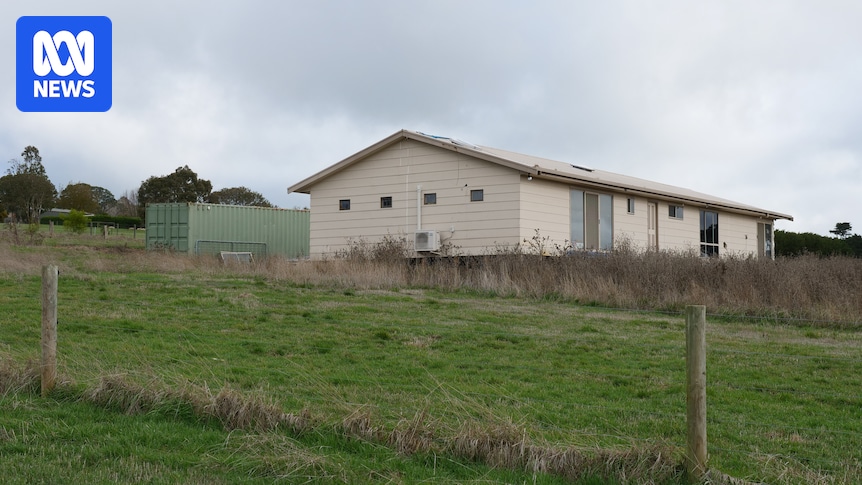Building a house on the wrong block of land does not happen very often, but it happens enough that some Australian states and other countries have laws in place to resolve it.
Unfortunately for Melanie and David Moor, who are grappling with this issue in south-west Victoria, there are no such laws in place in their state despite it being mooted as part of a law review in 2010.
Melanie Moor and her partner David are going through lawyers with the block owner to find a solution. (ABC South West Victoria: Olivia Sanders)
Adjunct professor at Victoria University’s Sir Zelman Cowen Centre, Pam O’Connor, was the commissioner of the Victorian Law Commission’s 2010 review into the state’s Property Law Act 1958.
As part of the review, the commission examined a case much like the situation between the Moors and the owner of the Camperdown block.
Pam O’Connor says Victoria’s property laws aren’t equipped to fairly deal with cases of the “mistaken improver problem”. (Supplied: Pamela O’Connor)
In a case from 1957, called Brand vs Chris Building Company, a defendant had also mistakenly built a house on the wrong land.
The Supreme Court ultimately ruled it did not have the jurisdiction to aid the defendant, effectively granting the house to the landowner.
“The Supreme Court of Victoria said in that situation [the house] belongs to the owner of the land, basically end of story,” Professor O’Connor said.
“There’s no compensation [for the defendant] even though it adds to the value of the land.”
This 2-hectare piece of land was the target of confusion after a couple mistakenly moved a house onto it. (ABC South West Victoria: Olivia Sanders)
Professor O’Connor said the so-called mistaken improver problem had been dealt with in South Australia, New South Wales, Queensland and New Zealand through laws that gave the Supreme Court “discretion to make such orders as are just and equitable in the circumstances”.
This may include ordering land sales, ordering the removal of improvements, transfer of titles, or ordering the landowner to pay the home builder compensation.
“There’s a range of things a court can do to deal with the varied circumstances that can arise,” Professor O’Connor said.
“These statutes have been in operation for a long time in other states, but Victoria’s never acted on it even though we have the Brand vs Chris Building Company case back in 1957.”How often does this happen?
It is unclear how often the matter of building on the wrong block comes up.
But a Queensland district court judge noted in a similar 2010 incident that the frequency of it happening “is surprisingly large”.
“Such errors are likely to recur as long as there is large-scale development of new residential subdivisions, which in their undeveloped condition often make it difficult to identify a particular allotment or to distinguish one from another,” the judge said.
“Legislation on this topic is, in our opinion, therefore not only justified but necessary.”Messy legal battle underway after house built on wrong block
Professor O’Connor agreed, noting that Queensland had reviewed its property law act twice recently.
“It’s probably come up other times [in Victoria since 1957] but people may have been able to sue somebody [like] a builder or architect who doesn’t check [the address] — they might seek compensation from that professional,” she said.
“The problem is that Victoria has never really provided for this scenario, and they haven’t given the court the range of powers that it would need to fashion an outcome that’s fair in particular circumstances, which is a real shame.
“The commission put forward a very specific proposal supported by detailed analysis of the legal problem, and it hasn’t been acted on.”
The state government has been approached for comment.
Discussions between the Moors and the owner of the Camperdown block of land remain ongoing.
“I just hope the lawyers can come to some sort of resolution,” Ms Moor said.
“We can only wait to hear what [the lawyers] say. I don’t know where we go from here.”

